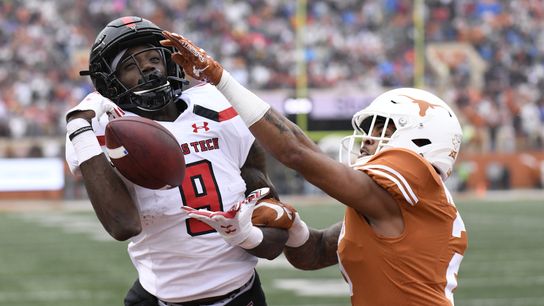As the story goes, the entire reason the original Big 12 was the Big 12 was all thanks to Texas governor Ann Richards (a Baylor grad) and lieutenant governor Bob Bullock (Texas Tech) leveraging their power bending ears and twisting arms to attach their respective schools to Texas and Texas A&M upon the breakup of the Southwest Conference.
A decade and a half later, Baylor successfully gummed up the works to keep UT, A&M and Texas Tech from joining Oklahoma, Oklahoma State and Colorado from joining what was to be the Pac-16. A&M eventually dangled off the hook to the SEC, but the plan worked well enough.
Here we are now with another impending separation of Austin from Waco, Lubbock and Fort Worth, and once again Texas politicians are trotting out the same play that has worked in the past.
On Friday, Texas Representative Dustin Burrows, a Republican from Lubbock, filed House Bill 298 "which requires legislative approval before a public senior college or university can change membership in a collegiate conference. The bill claims four co-authors and 30 additional supporters in the House, plus corresponding legislation in the Senate.
"Such important decisions must not be made by a select few behind closed doors, nor should they be unduly impacted by out-of-state interests who have little care or concerns for the people of Texas," said co-sponsor Jeff Leach.
Statement on filing of HB298: pic.twitter.com/RgPoCn37oC
— Dustin Burrows (@Burrows4TX) July 23, 2021
Here, the bill collapses under the weight of its own faulty logic. "A decision to switch to a different athletic conference affects the opportunity and stability of our publicly-funded universities across the state and must be fully vetted in the most transparent and comprehensive manner possible."
Note the emphasis on public there. Impending realignment will be a net positive for the state of Texas, at least its public schools.
Texas Tech is in for a potentially catastrophic fallout, that's undeniable. But is it not in the state's best interest to see its two preeminent universities rekindle their rivalry as members of college football's premier conference? Is there anyone brave enough to argue that's a bad outcome for the state of Texas? And if anything, the other FBS public institutions in Texas -- Houston, North Texas, UTSA and UTEP -- stand to gain from the falling dominoes. A&M's SECession from the Big 12 lifted TCU into the Power 5, and who's to say UT and OU's departure doesn't wind up doing the same for Houston and SMU?
The point here isn't to argue UT's impending departure on its merits, of course. It's to pound the table and hope something good comes out of it. It worked the last two times, and Tech, Baylor and TCU are praying it works a third as well.
And while I'm not going to sit here and pretend to be an expert in Texas politics, I will share three thoughts.
1) As a lifelong Texan, it's comforting to know the electrical grid issues of this past winter are well behind us if our state politicians have time to spend on this.
2) The Texas state legislature meets once every two years. The 87th session ended July 8, and the 88th isn't set to begin until Jan. 10, 2023. I can't sit here and tell you it's impossible to get anything done in the meantime, but it can't be easy.
3) Unlike the last two go-rounds, the governor is a Longhorn. As is House Speaker Dade Phelan. Knowing what we do now -- that these discussions have been ongoing for six months or longer -- let's think back to this January gathering of Steve Sarkisian, UT board of regents chair Kevin Eltife, UT president Jay Hartzell, UT AD Chris Del Conte and Governor Greg Abbott.
Been thinking about this photo since 3pm on Wednesday. pic.twitter.com/s8vgVbYWbJ
— Geoff Ketchum (@gkketch) July 23, 2021
What do you think the topic of conversation might've been that night?
